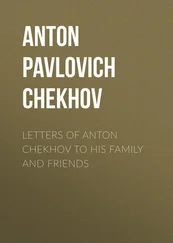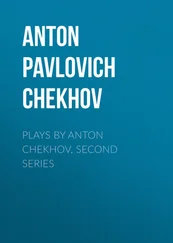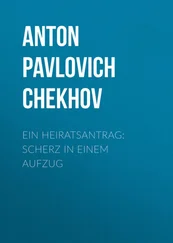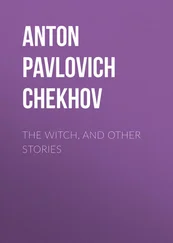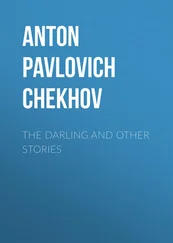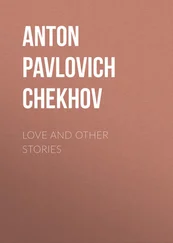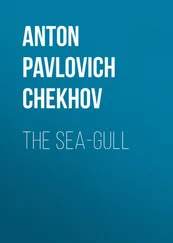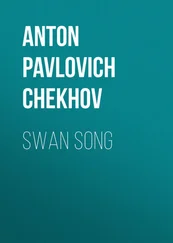Donald Rayfield - Anton Chekhov. A life
Здесь есть возможность читать онлайн «Donald Rayfield - Anton Chekhov. A life» весь текст электронной книги совершенно бесплатно (целиком полную версию без сокращений). В некоторых случаях можно слушать аудио, скачать через торрент в формате fb2 и присутствует краткое содержание. Жанр: Биографии и Мемуары, на английском языке. Описание произведения, (предисловие) а так же отзывы посетителей доступны на портале библиотеки ЛибКат.
- Название:Anton Chekhov. A life
- Автор:
- Жанр:
- Год:неизвестен
- ISBN:нет данных
- Рейтинг книги:5 / 5. Голосов: 1
-
Избранное:Добавить в избранное
- Отзывы:
-
Ваша оценка:
- 100
- 1
- 2
- 3
- 4
- 5
Anton Chekhov. A life: краткое содержание, описание и аннотация
Предлагаем к чтению аннотацию, описание, краткое содержание или предисловие (зависит от того, что написал сам автор книги «Anton Chekhov. A life»). Если вы не нашли необходимую информацию о книге — напишите в комментариях, мы постараемся отыскать её.
Anton Chekhov. A life — читать онлайн бесплатно полную книгу (весь текст) целиком
Ниже представлен текст книги, разбитый по страницам. Система сохранения места последней прочитанной страницы, позволяет с удобством читать онлайн бесплатно книгу «Anton Chekhov. A life», без необходимости каждый раз заново искать на чём Вы остановились. Поставьте закладку, и сможете в любой момент перейти на страницу, на которой закончили чтение.
Интервал:
Закладка:
ACKNOWLEDGEMENTS
My warmest thanks go to Alevtina Kuzicheva. Without her assistance my work in the Otdel rukopisei (The Manuscript Department) of the Russian State Library and RGALI (Russian State Archives for Literature and Art) would have been more trammelled, and through her I had introductions to every major Chekhovian scholar and museum in Russia and the Ukraine. I want to thank the staff at the Russian State Library and the Manuscript Department who, despite the demoralizing conditions, a dilapidated building and grim prospects, managed to deliver most of what I sought; the same applies to the staff at RGALI. I am grateful to Galina Shchiobeleva of the Moscow Chekhov Museum, and to Igor Skvortsov of the Sumy Chekhov Museum for allowing me so much access. To Liza Shapochka and her husband Vladimir Protasov of Taganrog I owe a special debt for their hospitality and consultations. Olga Makarova of Voronezh University Press has been very helpful in providing local material. Among my Western colleagues, Professor Rolf-Dieter Kluge, the energetic organizer of the Badenweiler conferences of 1985 and 1995, has been a great stimulus. I want to thank Dmitri Konovalov of Ufa for lending me his manuscript notes on the Andreev sanatorium, as well as for his hospitality. (None of these experts, or anybody else I have consulted, bears any responsibility for my judgments or approach.)
I also thank the doctor in charge of the hospital that was once Bogimovo and the staff at the Andreev sanatorium at Aksionovo. Apart from Siberia, Sakhalin and Hong Kong, I feel I have stood and sat, and have been a minor or major nuisance, in almost every place that bears Chekhov's imprint. Descendants of Chekhov's friends, for instance M. Patrice Bijon, have been most tolerant of my search for material. Countless people will be grateful that the work is finished. Thanks and acknowledgements for illustrations to the Bakhrushin Theatre Museum (Moscow), to the Chekhov Museums in Melikhovo, Moscow, Sumy, Taganrog and Yalta, to the Pushkinski Dom (St Petersburg), and to the Russian State Library.
This book owes much to British Academy support: notably a three-month humanities research fellowship, which extended my sabbatical leave long enough to make headway. To my colleagues at Queen Mary and Westfield College, who had to put up with frequent dereliction of duty, I proffer my apologies. xviii m
ABBREVIATIONS AND REFERENCES
This book is meant for the general reader, but for specialists I have given sources for quotations and new information. References are given to archive sources and less accessible publications: Chekhov's letters and the best-known memoirs (see Select Bibliography) are well indexed, and the reader can check these sources without additional reference. All translations into English are my own. In footnotes I have used a few abbreviations (the place of publication is Moscow, unless otherwise indicated): MXaT OR
RGALI PSSP
Gitovich Letopis Pis ma 1939 Pis ma 1954 Perepiska 1934, 1936 Knipper-Chekhova 1972 Levitan Pis ma 1956 Moscow Arts Theatre Museum Archive Manuscript Department of Russian State Library (otdel rukopiset) Russian State Archives for Literature and Art A. P. Chekhov Polnoe sobranie sochinenii i pisem: 1 -18, works (referred to as I-XVUI); 1-12 (+ indices), letters (referred to as 1I2\ I973"83N. I. Gitovich Letopis' zhizni i tvorcbestva A. P. Chekhov a, 1955 I. S. Ezhov Pis'ma A. P. Chekhovu ego brata Aleksandra Pavlovicha, 1939 M. P. Chekhova Pis'ma k bratu A. P. Chekhovu, 1954 A. P. Derman, Perepiska A. P. Chekhova i 0. L. Knipper, 1934, 1936 V. la. Vilenkin, Olga Leonardovna Knipper-Chekhova, 1972 A. Fiodorov-Davydov, A. Shapiro /. /. Levitan: Pis'ma, dokumenty, vospominaniia, 1956
XXI
ANION (II I h IK IV Perepiska I, II, 1984 Letopisets Î semie 1970 Vokrug Chekbova V vospominaniiakh LN68
LN87
M. P. Gmniovsi el;il. I'rrrpiska A. P. Chekbova, 10H4, 1 vols. (F.xpanded 1996, 3 vols.) A. P. Kuzicheva, E. M. Sakharova Melikhovskii letopisets: Dnevnik P. E. Chekbova, 1995 Sergei Mikhailovich Chekhov, Î semie Iaroslavl, 1970 Vokrug Chekbova (ñîòð. Å. M. Sakharova),
1990
Chekhov v vospominaniiakh sovremennikov (ñîòð. N. I. Gitovich), 1986 Literaturnoe nasledstvo 68: Chekhov (ed. V. V. Vinogradov), i960 Literaturnoe nasledstvo 87: Iz istorii russkoi literatury… (ed V. R. Shcherbina), 1977
A NOTE ON TRANSLITERATION
Transliteration from Russian is standard British, except that I use / for both è and É. I also transcribe Russian e as e, although initially and after a vowel it is pronounced ye. Russian surnames of transparently French or German origin are given in more familiar forms, thus Áîíüå, Øåõòåïü are rendered Beaunier, Schechtel, not Bonie, ShekbteP. Tchaikovsky is spelt traditionally; so is Chaliapin. Russian female names are given feminine form: Chekhova, Ternovskaia. Crimean Tatar names are given Turkish spellings. I have taken liberties with Russian first names. Patronymics (the middle names ending in -ovich, -ovna, etc.) have been omitted except where needed; I have reduced the varied forms of Christian names, whose choice depends on degree of acquaintance, intimacy, mood, to the minimum: for example, it may not be clear to an English reader that Maria, Mariushka, Marusia, Mania, Mosia and Masha are all the same person. In the case of Chekhov's siblings, I hope I may be forgiven for referring to Maria Pavlovna Chekhova as Masha, Nikolai Pavlovich as Kolia, Ivan Pavlovich as Vania, Mikhail Pavlovich as Misha; as there are other Sashas in Chekhov's life, Aleksandr Pavlovich Chekhov remains Aleksandr. In the interests of clarity, I use the better known pseudonyms of some persons (Gruzinsky for Lazarev, Andreeva for Andreeva-Zheliabuzhskaia, etc.). The index should resolve any ambiguities. Dates are given by the Russian (Julian) calendar, twelve days behind Europe until 12 March 1900, then thirteen days behind. All dates are Russian, except when the action takes place abroad when both dates are given. Russian temperatures in Reaumur have been converted to centigrade.
XXII
I
Father to the Man We could hear screams coming from the dining room… and knew that poor Ernest was being beaten. 'I have sent him up to bed,' said Theobald, as he returned to the drawing room, 'and now, Christina, I think we will have the servants in to prayers." Samuel Butler, The Way of All Flesh
ONE
Ô
Forefathers
1762-1860
È^î would have thought that such genius could come from an earth closet! ANTON CHEKHOV and his eldest brother Aleksandr were bewildered: in two generations the Chekhovs had risen from peasantry to metropolitan intelligentsia. Little in Anton Chekhov's forebears hints at his gifts for language, or foretells the artistic talents of his brother Nikolai or the polymath versatility of his eldest brother Aleksandr. The key to Chekhov's character, his gentleness and his toughness, his eloquence and his laconicism, his stoical resolution, is hidden in the genes he inherited as well as in his upbringing.
Chekhov's great-grandfather, Mikhail Chekhov (1762-1849), was a serf all his life. He ruled five sons sternly: even as adults, they called him Panochi, Lord Father. The first Chekhov of whom we know more is Mikhail's second son and Anton Chekhov's paternal grandfather, Kgor Mikhailovich Chekhov. As a child Chekhov met him on a few summer holidays. There was no affection between them.1 Grandfather Kgor fought his way out of bondage. He was born in 1798, a serf of Count Chertkov at Olkhovatka in Voronezh province, the heart of Russia, where forests meet steppes, half way between Moscow and the Black Sea. (Chekhovs are traceable in this region to the sixteenth century.) Egor, alone of his kin, could read and write.
Kgor made sugar from beet and fattened cattle on the pulp. Driving Count Chertkov's cattle to market, he shared the profits. Through luck, ruthlessness and thirty years' hard work, Egor accumulated 875 roubles.2 In 1841 he offered his money to Chertkov to buy himself, his wife and his three sons out of serfdom into the next class of Russian citizens, the petit-bourgeoisie (meshchane). Chertkov was generous; he deed Kgor's daughter Aleksandra too. Egor's parents and brothers remained serfs.
Читать дальшеИнтервал:
Закладка:
Похожие книги на «Anton Chekhov. A life»
Представляем Вашему вниманию похожие книги на «Anton Chekhov. A life» списком для выбора. Мы отобрали схожую по названию и смыслу литературу в надежде предоставить читателям больше вариантов отыскать новые, интересные, ещё непрочитанные произведения.
Обсуждение, отзывы о книге «Anton Chekhov. A life» и просто собственные мнения читателей. Оставьте ваши комментарии, напишите, что Вы думаете о произведении, его смысле или главных героях. Укажите что конкретно понравилось, а что нет, и почему Вы так считаете.

